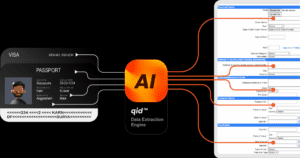Demystifying the Role of a Business Intelligence Analyst
In today’s data-driven business landscape, the role of a Business Intelligence (BI) Analyst is crucial for organizations seeking to make informed decisions, drive efficiency, and gain a competitive edge. A Business Intelligence Analyst is responsible for transforming raw data into actionable insights, helping businesses make strategic choices. In this comprehensive article, we will explore the role, responsibilities, skills, and significance of a Business Intelligence Analyst in modern enterprises.
Download:- India’s 1st ID Gateway – qid
Introduction to Business Intelligence Analysts
What is Business Intelligence (BI)?
Business Intelligence refers to the processes, tools, technologies, and strategies used to collect, analyze, and present business data to facilitate decision-making. It’s about turning data into meaningful information.
Who is a Business Intelligence Analyst?
A Business Intelligence Analyst is a professional who specializes in analyzing data to provide valuable insights and drive business improvements. They play a pivotal role in helping organizations make informed decisions.
The Role of a Business Intelligence Analyst
Data Collection and Integration
BI Analysts are responsible for collecting data from various sources within an organization, including databases, spreadsheets, and external data sources. They ensure data is clean, accurate, and integrated for analysis.
Data Analysis and Interpretation
Once data is collected and integrated, BI Analysts analyze it to identify trends, patterns, and insights. They use various tools and techniques to perform this analysis.
Report Generation
BI Analysts create reports, dashboards, and visualizations to present their findings to stakeholders. These reports are designed to be easily understood by non-technical personnel.
Decision Support
BI Analysts provide decision-makers with the information they need to make strategic decisions. They may also offer recommendations based on their analysis.
Responsibilities of a Business Intelligence Analyst
Data Extraction and Transformation
BI Analysts extract data from different sources and transform it into a usable format for analysis. This often involves cleaning and structuring data.
Data Modeling
They create data models to represent and organize data for analysis. These models may include tables, charts, or graphs.
Querying and Analysis
BI Analysts use SQL queries or BI tools to retrieve data from databases. They analyze this data to identify trends, anomalies, and insights.
Visualization and Reporting
They use data visualization tools like Tableau, Power BI, or Excel to create reports and dashboards. These visualizations make it easier for stakeholders to grasp complex data.
Collaboration
BI Analysts often collaborate with different teams within an organization, including IT, marketing, finance, and operations. They gather requirements, understand business needs, and deliver solutions.
Skills and Qualities of a Business Intelligence Analyst
Analytical Skills
BI Analysts must have strong analytical skills to dissect data and extract meaningful insights. They use statistical techniques and data modeling to uncover trends.
Technical Proficiency
Proficiency in tools like SQL, Excel, and BI software is crucial. Familiarity with programming languages like Python or R is also beneficial.
Data Visualization
The ability to create compelling data visualizations is vital. BI Analysts use charts, graphs, and dashboards to convey their findings.
Business Acumen
Understanding the organization’s business goals and challenges is key. BI Analysts must align their analysis with business objectives.
Communication Skills
BI Analysts need strong communication skills to convey complex technical findings to non-technical stakeholders effectively.
Problem-Solving
They should be adept at problem-solving, as they often encounter data-related challenges and discrepancies that require solutions.
The Significance of Business Intelligence Analysts
Data-Driven Decision-Making
BI Analysts enable data-driven decision-making by providing actionable insights. This results in better strategic choices and improved business outcomes.
Competitive Advantage
Organizations that leverage data effectively gain a competitive advantage. BI Analysts contribute to this advantage by uncovering opportunities and threats.
Cost Reduction
By identifying inefficiencies and areas for optimization, BI Analysts help organizations reduce costs and increase efficiency.
Improved Customer Experience
Understanding customer behavior through data analysis allows businesses to tailor their products and services to meet customer needs, enhancing the customer experience.
Innovation
BI Analysts play a role in fostering innovation by identifying emerging trends and opportunities for product or process innovation.
Tools and Technologies Used by Business Intelligence Analysts
Business Intelligence Software
BI Analysts use software like Tableau, Microsoft Power BI, QlikView, and MicroStrategy for data analysis and visualization.
SQL Databases
Structured Query Language (SQL) is used to query and manipulate data stored in relational databases.
Excel
Excel is a versatile tool for data analysis, reporting, and visualization.
Programming Languages
Some BI Analysts use programming languages like Python or R for advanced analytics and data modeling.
Data Warehousing
Data warehousing solutions like Amazon Redshift or Google BigQuery are used for storing and managing large datasets.
Challenges Faced by Business Intelligence Analysts
Data Quality
Ensuring data accuracy and consistency is a persistent challenge. Inaccurate data can lead to flawed analyses and decisions.
Data Security and Privacy
Handling sensitive data comes with the responsibility of maintaining security and compliance with data privacy regulations like GDPR and HIPAA.
Keeping Up with Technology
The field of BI is continually evolving, with new tools and technologies emerging regularly. BI Analysts must stay updated to remain effective.
Resistance to Change
Introducing data-driven decision-making may face resistance from employees who are accustomed to traditional decision-making processes.
Career Paths and Opportunities for Business Intelligence Analysts
Senior Business Intelligence Analyst
Experienced BI Analysts can advance to senior positions, where they lead projects, mentor junior analysts, and work closely with top-level management.
Business Intelligence Manager
Business Intelligence Managers oversee BI teams, set strategies, and ensure that BI initiatives align with organizational goals.
Data Scientist
Some BI Analysts transition to roles as Data Scientists, where they focus on advanced analytics, machine learning, and predictive modeling.
Conclusion: The Evolving Role of Business Intelligence Analysts
As organizations continue to generate vast amounts of data, the role of Business Intelligence Analysts remains critical. They bridge the gap between data and decision-making, contributing to improved efficiency, innovation, and competitiveness. In an era where data is king, the work of these professionals is invaluable.








